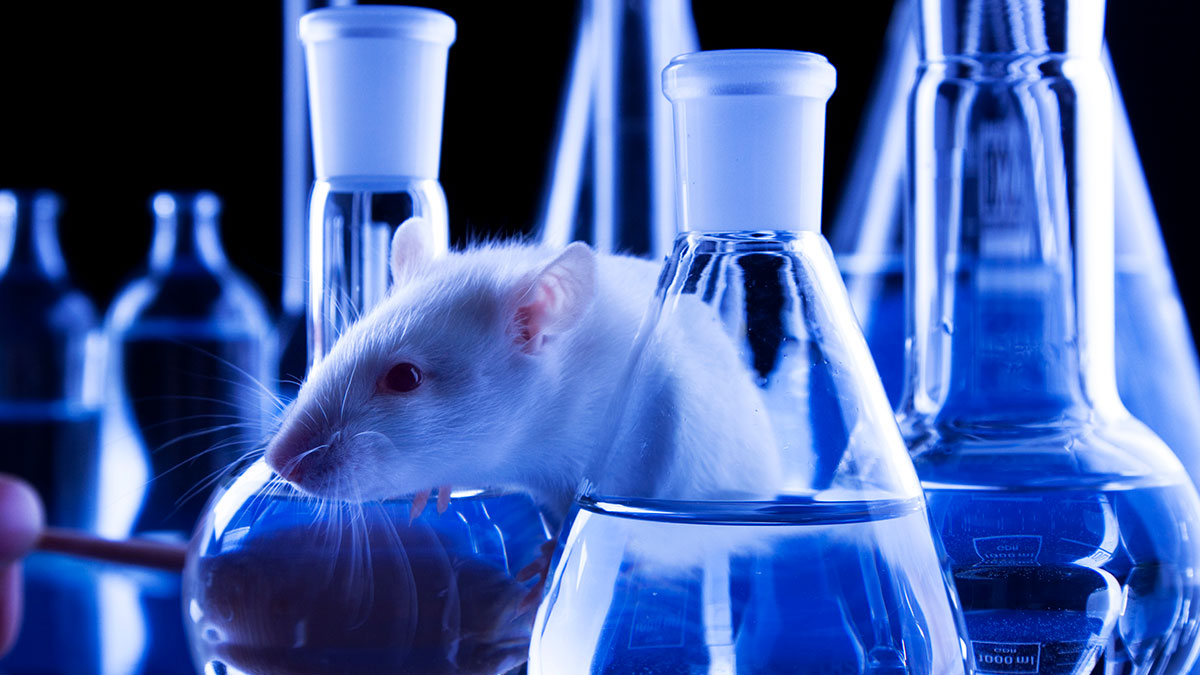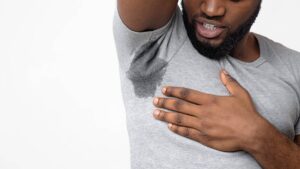Health Check: Rats – and investors – are happy as Nyrada forges ahead with its first human trial

Pic: Getty Images.
- Nyrada to launch phase I first-in-human trial after passing preclinical safety studies
- Neuren Pharmaceuticals ‘mini me’ Percheron seeks funds for rare disease program
- Another win for Pro Medicus, this time locally
Nyrada (ASX:NYR) shares surged more than 30% this morning after the company paved the way for a phase I first-in-human human study for its drug candidate to treat strokes and traumatic brain injury and provide cardio protection.
The company said it had completed good laboratory practice (GLP) safety studies of its lead candidate NYR-BI03, with no harm done to the rats in a 14-day toxicology study (it’s also been tested on dogs).
The next stop is ethics approval, with the trial expected to start in the current quarter.
NYR-BI03 works by blocking Transient Receptor Potential Canonical (TRPC) channels (for more info, Google it mate).
As is the norm, the study will assess the safety, tolerability, and pharmacokinetics of the drug candidate in health volunteers.
Nyrada chief James Bonnar says the trial will add to the company’s preclinical data supporting the efficacy of the molecule in neuro protection and cardio protection.
Announced in February, preclinical stroke study results showed that NYR-BI03 had a “statistically significant” neuroprotective effect, rescuing 42% of brain tissue in the penumbra region of treated animals.
This month Nyrada said the results of a preclinical coronary heart disease study showed that NYR-BI03 had an 86% cardioprotective effect.
This pertained to patients with myocardial ischemic-reperfusion injury, a leading cause of tissue damage when blood flow is restored to the heart post-trauma.
Of course everything works in rats and mice when it comes to drug development, so the human results will be keenly anticipated.
Meanwhile the stroke detection and treatment sector has been fertile for ASX-listed biotechs.
Other developers of potential therapies are Argenica Therapeutics (ASX:AGN) and Clinuvel Pharmaceuticals (ASX:CUV) .
EMvision Medical Devices (ASX:EMV) and Micro-X (ASX:MX1) are working on tools for first responders to differentiate ischaemic strokes (clots) from bleeds – an important difference given that delivering blood thinners to the latter victims probably will kill them.
Nyrada shares were 31.3% higher at $0.13.
Amplia kick-starts pancreatic cancer study
In other trail news, Amplia (ASX:ATX) has restarted enrolments for its phase 2a trial, which tests its pancreatic cancer treatment candidate alongside standard of care chemotherapy.
The company is recruiting the final cohort of 24 patients, with the first one dosed this week.
In total the company is targeting 50 patients in the study, dubbed Accent, which is being carried out at sites in Australia (including Newcastle’s Calvary Mater Hospital) and in South Korea.
The stalled trail re-started after the results from six patents in the initial cohort had a partial response, suggesting the combination therapy was “sufficiently active to support continuation of the trial.”
Amplia’s candidate narmafotinib is a FAK inhibitor, which sounds rude but in fact suppresses a protein overexpressed in pancreatic and other cancers.
The completed first phase of the trial (phase 1b) identified the ideal dosing, while the current stage assesses efficacy as well as safety and tolerability.
Amplia shares firmed 3% to $0.155.
Percheron seeks fund for rare disease program
The flood of capital raisings continues apace, with Percheron Therapeutics (ASX:PER) shares entering trading halt pending a funding announcement by Friday.
At this stage, we understand it’s a work in progress. But whatever the amount raised it will be on the back of a much better share price – up 125% year to date.
Formerly known as Antisense Therapeutics, Percheron is developing and a drug for a rare neurological childhood disorder, Duchenne Muscular Dystrophy (DMD).
A genetic and ultimately fatal condition, DMD affects about one in 10,000 males (or 300,000 in all).
The disease results from mutations in the DMD gene, which affects production of the muscle protein dystrophin.
The resulting muscle damage causes movement-related muscle damage leading to chronic inflammation and progressive loss of function.
The raising comes at a key juncture, with top-line results from a phase 2b trial of 48 wheelchair-bound boys due by the end of the year.
No doubt the deal makers will be inviting comparison between the $120 million market cap Percheron and the $1.6 billion Neuren Pharmaceuticals (ASX:NEU) , which pursued a DMD drug before commercialising one for the rarer Rett Syndrome.
Percheron shares were frozen at $0.135.
Pro Medicus extends $32 million imaging deal with large local client
Home grown radiology imaging and systems upstart ProMedicus (ASX:PME) has an unashamed bias to the US, where it derived about 85% of last year’s revenue of $161 million.
But don’t accuse the Melbourne based company of ignoring its own shores, with the company this morning announcing a $32 million, five year contract extension with a “large radiology network”.
The client is renewing at a higher rate for the Visage RIS (radiology information system) product, one of the company’s mainstay offerings.
On October 7 the company said it had renewed a minimum $98 million contact over eight years with the St Louis-based Mercy Health. Once again, the deal was struck at a higher per-transaction cost than previously.
While some pundits question the company’s hefty $20 billion valuation, the contract wins show that it is not running out of puff.
Pro Medicus shares edged up half a cent to a record $191.24.
This article does not constitute financial product advice. You should consider obtaining independent advice before making any financial decisions.
Related Topics

UNLOCK INSIGHTS
Discover the untold stories of emerging ASX stocks.
Daily news and expert analysis, it's free to subscribe.
By proceeding, you confirm you understand that we handle personal information in accordance with our Privacy Policy.








